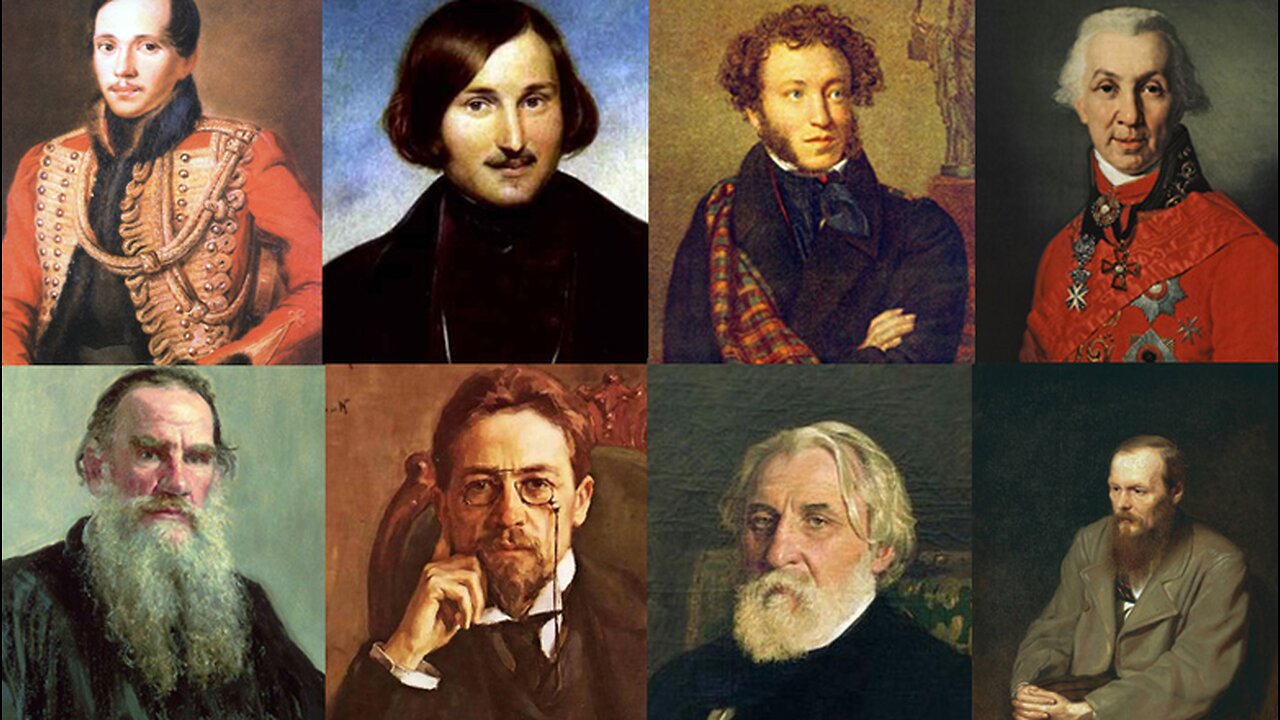Premium Only Content

Classics of Russian Literature | Exile, Rustic Seclusion, and Onegin (Lecture 4)
Lecture 4: In Odessa, a thriving port city on the Black Sea, Pushkin managed to irritate the local governor, who soon sent him packing back to his parents’ country estates in the north of Russia. During this time, he began a long work that would become Russia’s greatest poem. He called it a “novel in verse”: Eugene Onegin.
Inspired partly by Byron’s Don Juan, it dealt with many different literary themes and became an endless source of inspiration for writers and composers who came after Pushkin. Its central plot involves the title character, who is a strange combination of sensitivity, intelligence, and perversity. He recognizes the unusually high human value of the central female figure, Tatiana Larina, but rejects the love she offers when she is a young woman in the country. Later, when he sees her as a grande dame in St. Petersburg, it is his turn to experience rejection. The poem also deals with dueling and the death of the poet, perhaps a foreboding of the author’s fate
Suggested Reading and Listening:
Aleksandr Pushkin, Eugene Onegin, translation by James E. Falen.
Aleksandr Pushkin, Eugene Onegin—A Novel in Verse, translation and commentary by Vladimir Nabokov.
Petr I. Tchaikovsky, Eugene Onegin, an opera based on the poem.
-
 28:49
28:49
The Great Courses
2 months agoThe Age of Pericles | Plato (Lecture 23)
156 -
 52:00
52:00
Uncommon Sense In Current Times
17 hours ago $4.31 earned"Inclusive or Excluding? The Hidden Agenda Behind 'Happy Holidays"
15.7K6 -
 2:36
2:36
Canadian Crooner
1 year agoPat Coolen | Frosty the Snowman
12.7K5 -
 55:02
55:02
Bek Lover Podcast
18 hours agoAl Qaeda Take Over of Syria Backed by US & Israel? More Strange News...
9.9K4 -
 4:04:32
4:04:32
Alex Zedra
9 hours agoLIVE! New Scary Game w/ Heather
116K3 -
 49:19
49:19
barstoolsports
13 hours agoThe Game is Officially On | Surviving Barstool S4 Ep. 5
137K4 -
 4:33:30
4:33:30
BSparksGaming
9 hours agoYou're Next FAVORITE Rumble Streamer! Hump Day BO6 Grind! #RumbleTakeover
44.7K2 -
 3:22:22
3:22:22
Pepkilla
10 hours agoCan we get to Silver II on ranked toniiiight ~
34.7K1 -
 5:00:49
5:00:49
Drew Hernandez
10 hours agoPROJECT BLUE BEAM OR IRANIAN DRONES?
53.4K40 -
 1:42:58
1:42:58
Kim Iversen
13 hours agoEvacuating My Christian Family from Al-Qaeda-Controlled Syria: Kevork Almassian | Trump To End Birthright Citizenship? Jamarl Thomas
146K80